Russia has been accused of ramping up its use of prohibited chemical weapons as part of its ongoing war in Ukraine – including the deployment of the WWI-era poison gas chloropicrin.
The use of banned hazardous compounds by the Russian military has become ‘standardised and commonplace’ in Ukraine, the Netherlands’ military intelligence and security services, alongside the German intelligence service, found.
Russian soldiers use chloropicrin and riot control agent CS against sheltering Ukrainian soldiers to force them out into the open where they are more easily picked off, according to the findings.
Dutch defence minister Ruben Brekelmans called for more sanctions against Moscow, and continued military support for Kyiv.
Mr Brekelmans, who stayed on in a caretaker role after the Dutch government collapsed last month, said that he does not want to see the use of chemical weapons become normalised.
Lowering the threshold for use ‘is not only dangerous for Ukraine, but also for the rest of Europe and the world’, he said in a statement.
Russia has signed up to the Chemical Weapons Convention, which bans the use of chloropicrin and CS as weapons.
The convention’s watchdog, The Organisation for the Prohibition of Chemical Weapons (OPCW) has found several incidents in Ukraine involving CS but the group has not conducted a full investigation, which must be requested by the member states.
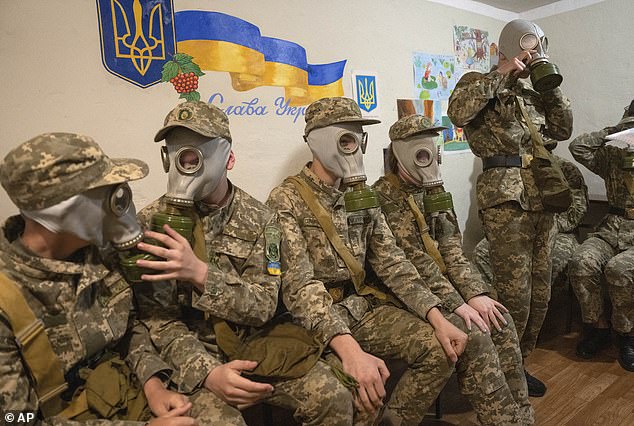
Ukrainian soldiers across the frontlines have long alleged that Russian troops are using tear gas and other banned chemical weapons including chloropicrin against them
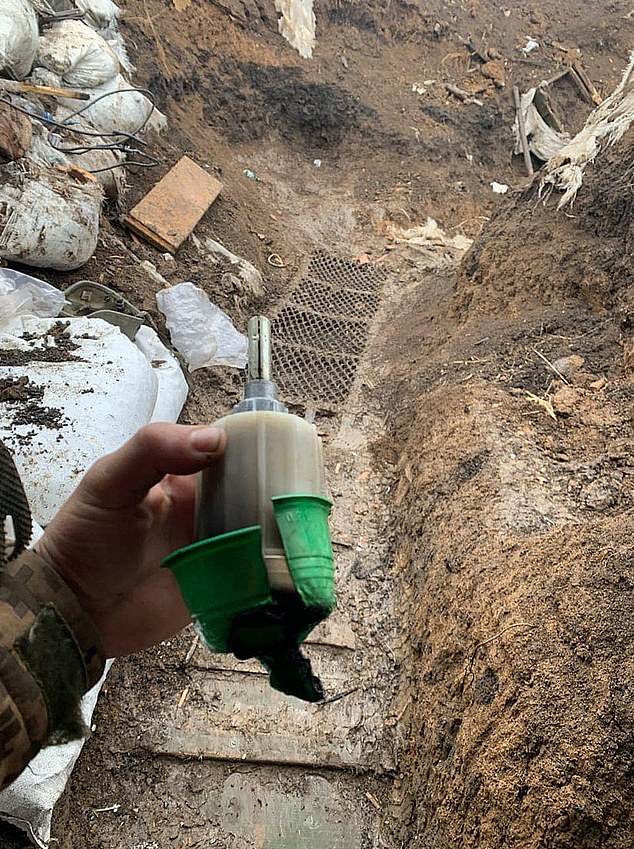
Ukrainian soldiers last year said Russian troops were dropping K-51 grenades (pictured), which according to experts are typically filed with tear gas
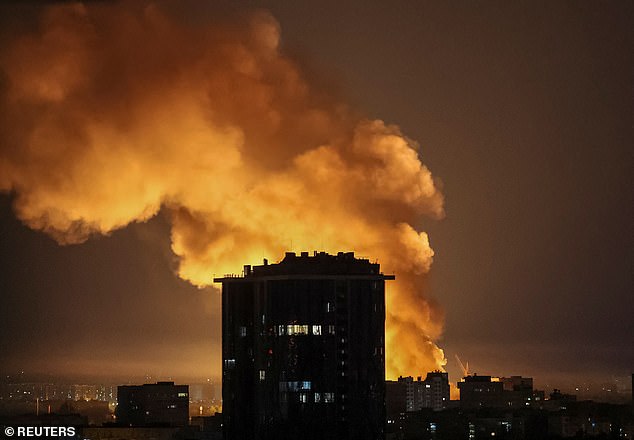
An explosion lights up the night sky over Kyiv, Ukraine, following a Russian drone and missile strike on July 4, 2025
The executive committee for the OPCW is holding a regular meeting next week, where it is expected to discuss the conflict in Ukraine.
Russian authorities have denied using chemical weapons in the past, instead alleging that Ukraine has used the banned substances.
According to Ukraine, Russia has carried out 9,000 chemical weapons attacks in the country since the start of the full-scale invasion in 2022.
In 2024, the US State Department said that it had recorded the use of chloropicrin against Ukrainian troops.
Tear gas, also known as CS, is banned during wartime under the Chemical Weapons Convention, which both Russia and Ukraine are signatories of.
However, last year Ukrainian soldiers claimed that Russian troops were regularly dropping K-51 grenades, which according to experts are typically filed with tear gas.
Ihor, a commander of a Ukrainian reconnaissance team, told The Telegraph that they were getting ‘one or two gas grenades dropped on them’ every day.
According to training documents that emerged in 2024, Ukrainian troops are now being told to stay where they are and endure the first few minutes of exposure to tear gas.
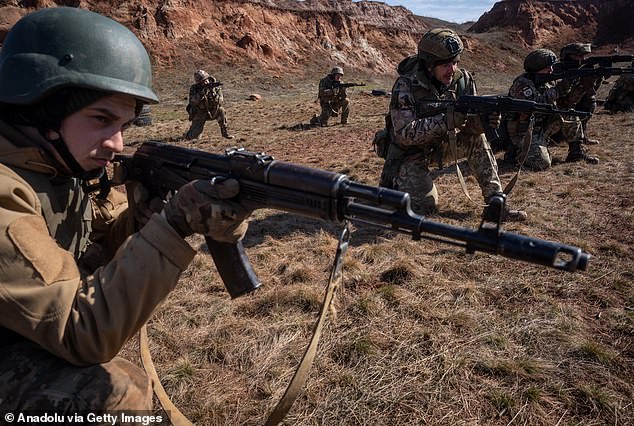
The war between Russia and Ukraine has now stretched well into its third year. Pictured: Ukrainian soldiers conduct combat drills in March 2024
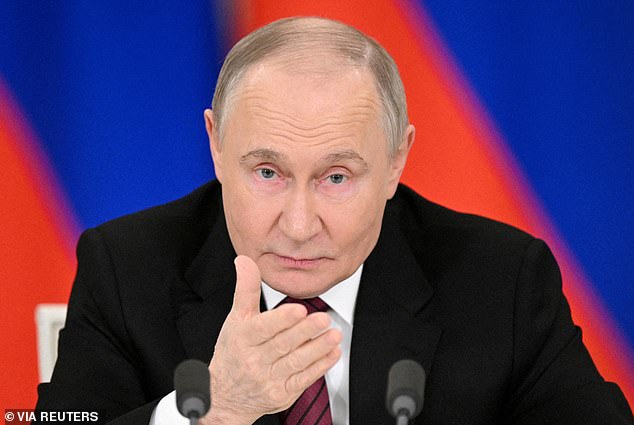
Russia on Friday said that it sees no immediate diplomatic way out of the war in Ukraine, hours after pummelling the war-torn country with its largest ever drone and missile barrage of the invasion. Pictured: Russian President Vladimir Putin
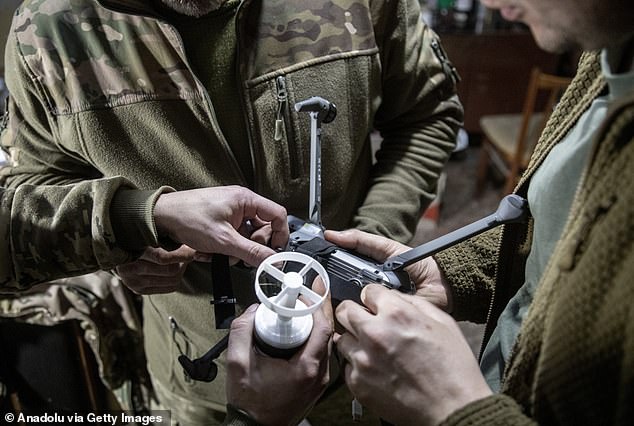
Ukrainian servicemen IT engineers work on adapting civilian drones for using them as modified military devices in the battlefield
While fleeing may give their position away, after the first few minutes the effect of the gas weakens.
Russia on Friday said that it sees no immediate diplomatic way out of the war in Ukraine, hours after pummelling the war-torn country with its largest ever drone and missile barrage of the invasion.
The hours-long bombardments sent Ukrainians scurrying for shelters across the country and came after a call between Trump and Russian President Vladimir Putin, which ended without a breakthrough.
Trump also said he had made no progress in discussions with Putin on ending more than three years of bitter fighting since the Kremlin ordered its troops into neighbouring Ukraine.
The Kremlin said Friday it was ‘preferable’ to achieve the goals of its invasion through political and diplomatic means.
‘But as long as that is not possible, we are continuing the special operation,’ spokesman Dmitry Peskov said in a briefing, referring to Russia’s invasion.
Zelensky said air alerts began echoing out across the country as the Trump-Putin call was getting under way.
‘Yet again, Russia is showing it has no intention of ending the war and terror,’ he said on social media.
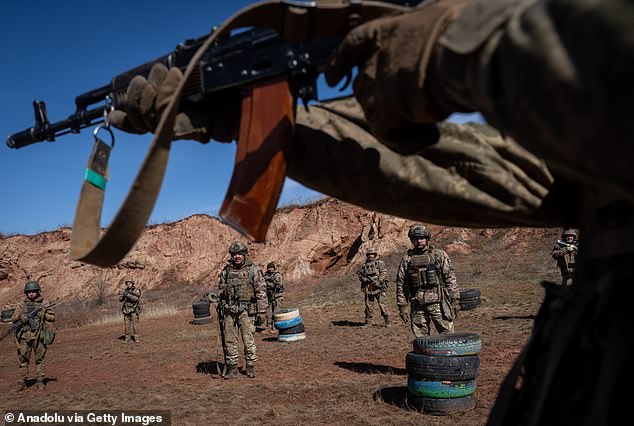
Ukrainian soldiers conduct combat drills, with troops reporting the use of tear gas to try and force soldiers out into the open
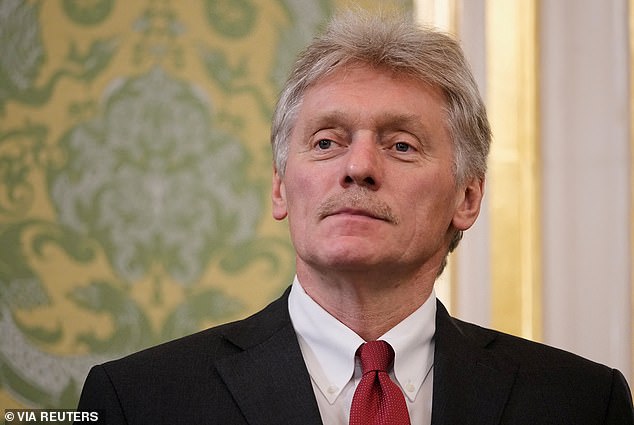
Putin spokesman Dmitry Peskov (pictured) said on Friday that while it was ‘preferable’ to achieve the goals of its invasion through political and diplomatic means, the war will continue ‘as long as that is not possible’
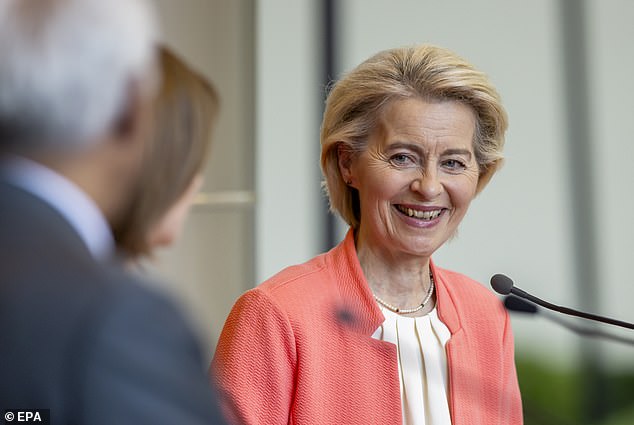
As the US announced this week it was reducing some of its aid deliveries to Ukraine, European Commission President Ursula von der Leyen (pictured) said it was a clear signal that the 27-nation European Union needed to ‘step up’
In Kyiv, concerns mounted over whether the US would continue delivering military aid, which is key to Ukraine’s ability to fend off the drone and missile barrages.
The US announced this week it was reducing some of its aid deliveries.
European Commission President Ursula von der Leyen said this was a clear signal that the 27-nation European Union needed to ‘step up’.
Ukraine has also ramped up its retaliatory strikes in Russia, where a woman was killed by a Ukrainian drone attack overnight, the acting governor of the Rostov region said.
Talks, spearheaded by the United States to secure a ceasefire, have stalled.